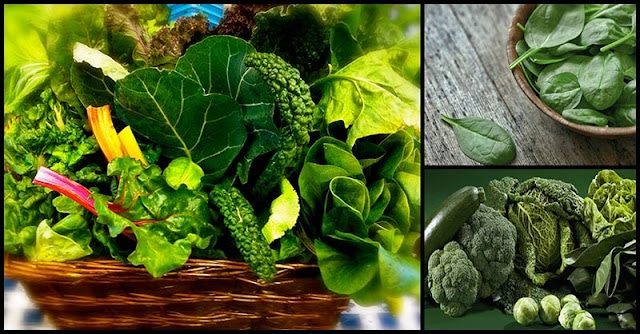Vegetables such as arugula, kale, Swiss chard, watercress, collards, bok choy, spinach, cabbage, and lettuce are just some of the most nutritionally packed foods we know. They are rich in fiber, vitamins (including vitamin A, B, K, B9 or folate, and C), amino acids, omega-3s, antioxidants, and minerals like magnesium, zinc, and calcium. All of these may help protect you from diabetes, heart disease, and cancer.
In a study conducted by researchers from Universities of Southampton and Cambridge, researchers have identified how a simple chemical called nitrate, which is found in leafy green veggies, can decrease instances of dangerous clots forming, help produce more of a compound that widens and opens blood vessels, help a diseased heart to function more efficiently, reduce the thickness of blood, and help change bad white fat cells into good brown, fat-burning cells, which reduce risk of type 2 diabetes and combat obesity.
Leafy Greens Are Rich In Fiber
Fiber keeps you feeling full and helps control your hunger, thereby making it an important nutrient for weight loss and maintenance. Aside from this, fiber can also help lower blood cholesterol, help to temper blood-sugar swings by slowing the absorption of carbohydrates into your bloodstream after meals, can lower your risk of type 2 diabetes, and cardiovascular disease. Furthermore, leafy greens also contain lots of water, thus keeping you hydrated and contributes to beautiful hair and skin.
Leafy Greens Are Rich In Minerals
Kale and collards, in particular, are rich in calcium, which helps keep your bones and teeth strong, reduces your risk for osteoporosis, and contributes to muscle function and blood-pressure management. Additionally, potassium can also be found in leafy greens and this mineral can help you manage blood pressure levels and protect you against osteoporosis.
Leafy Greens Have Antioxidants
Green leafy vegetables have antioxidants like lutein, vitamin C, and zeaxanthin, which all help reduce your risk of cataracts and macular degeneration. Plus, vitamin C helps the body in making collagen which is a major component of cartilage that aids in joint flexibility, keep your skin and hair healthy and beautiful, and may reduce your risk of arthritis. Lastly, research shows that vitamin C can possibly slow bone loss and decrease the risk of fractures.
Leafy Greens Contain Beta-Carotene
Beta-carotene contributes to the growth and repair of the body’s tissue. Vegetables such as spinach, Swiss chard, and collard greens contain beta-carotene, which may also protect your skin against sun damage. If you want to get your vitamin A fix, then food sources of beta-carotene are the best way because beta-carotene is converted into vitamin A in the body.
Leafy Greens Are Excellent Source Of Folate
Folate can be found in leafy greens. It contributes to the production of serotonin, thus warding-off depression and improving mood. Additionally, it can also reduce your risk of memory loss and cardiovascular diseases.
Leafy Greens Have Vitamin E
The vitamin E in green leafy veggies can help you reduce your risk of cataracts and macular degeneration and can protect your skin against sun damage. Along with vitamin C, it works to keep your skin healthy as you age.
Since leafy greens are the most versatile vegetable on the planet, you have an abundance of options on how to consume them. You can use them as a wrap substitute for burger buns and tortillas, as decorations on gourmet dishes, or as the main ingredients in salads. Aside from these, you can also juice them with other veggies, or blend with fruits for smoothies.









